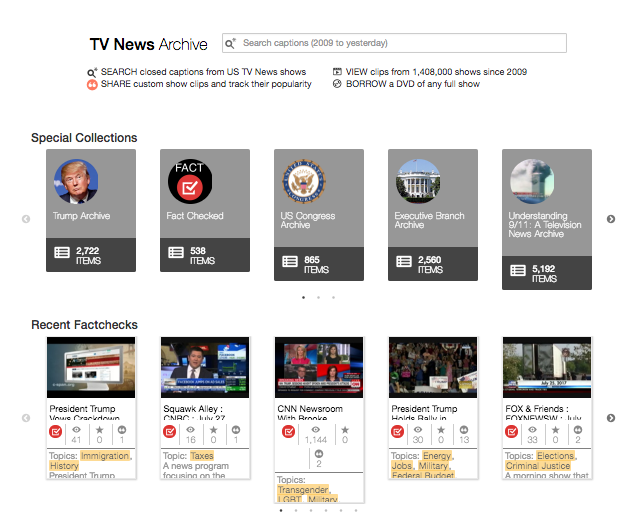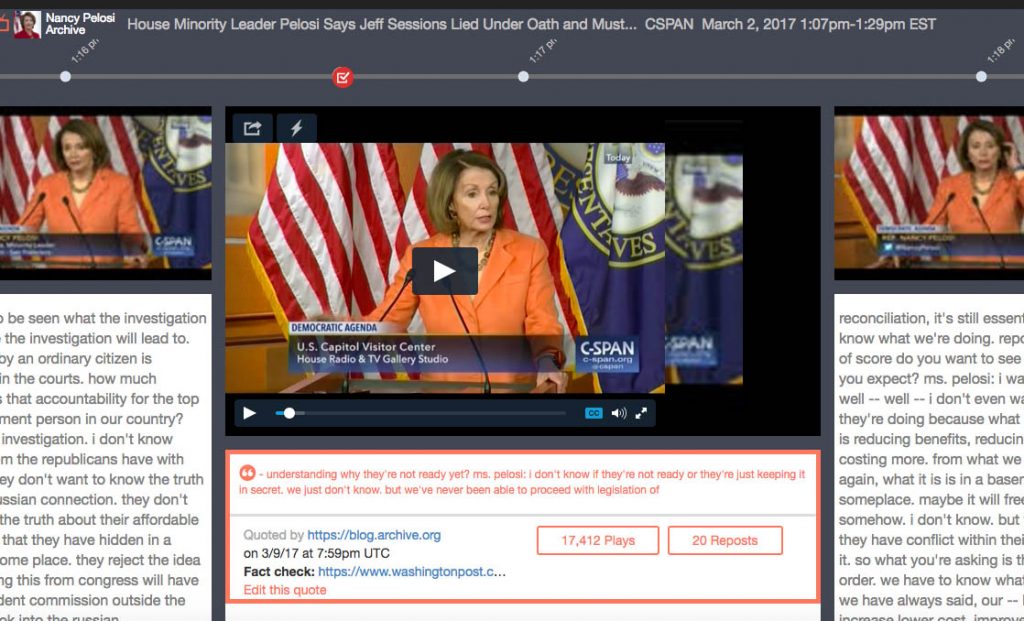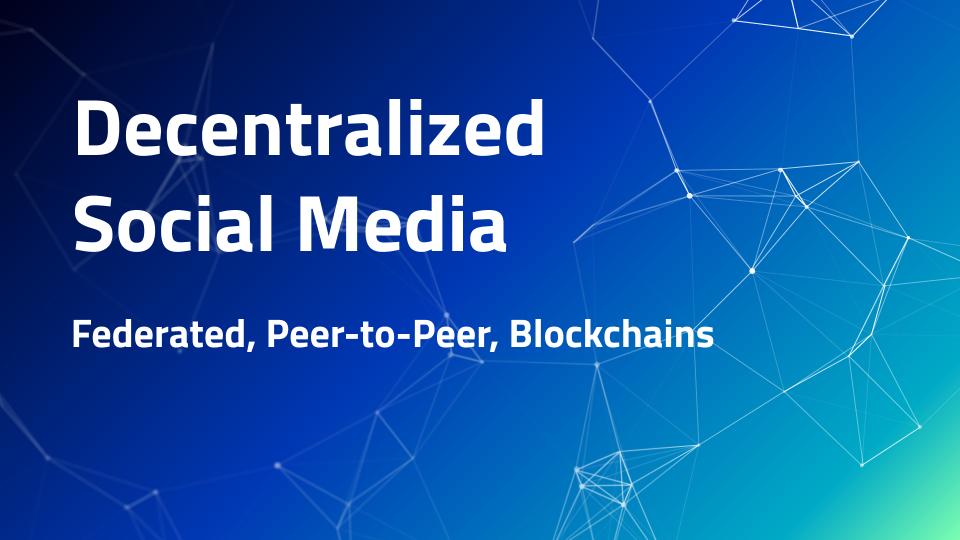
When Jack Dorsey, founder of the very centralized social media platform, Twitter, posted this message about decentralized social media, our DWeb community took note:
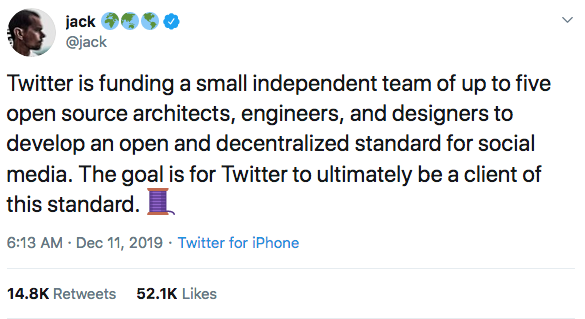
Dorsey went on to enumerate the current problems with social media: misinformation and abuse; opaque, proprietary algorithms that dictate what you see and hear; and financial incentives that elevate “controversy and outrage” rather than “conversation that informs and promotes health.” But Twitter’s co-founder and CEO also sees promising new solutions:

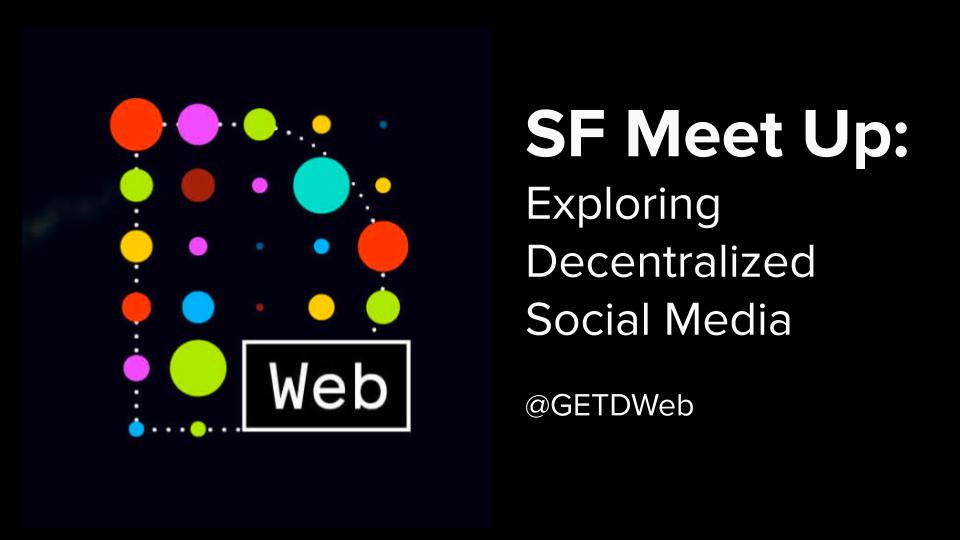
We agree. Much work has been done and some of the fundamentals are in place. So on January 21, 2020 the Internet Archive hosted “Exploring Decentralized Social Media,” a DWeb SF Meetup that attracted 120+ decentralized tech builders, founders, and those who just wanted to learn more. Decentralized social media app builders from London, Portland and San Francisco took us on a tour of where their projects are today.
WATCH PRESENTATIONS HERE:
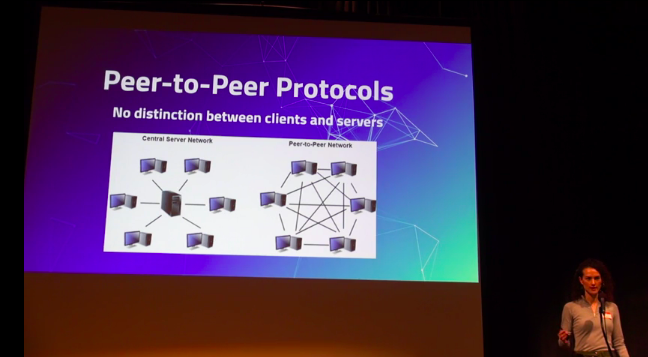
The evening began with a survey of the decentralized social media landscape by researcher and Happening.net developer, Jay Graber. (See her two excellent Medium articles on the subject.) Graber helped us understand the broad categories of what’s out there: federated protocols such as ActivityPub and Matrix; peer-to-peer protocols such as Scuttlebutt, and social media apps that utilize blockchain in some way for monetization, provenance or storage. What was clear from Graber’s talk was that she had tested and used dozens of tools, from Mastodon to Iris, Martti Malmi’s new P-2-P social app and she deftly laid out the pros and cons of each.
What followed were talks by the founders and developers from each of Graber’s categories:
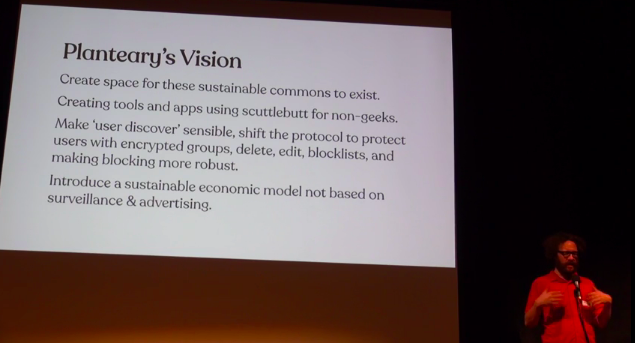
Evan Henshaw-Plath, an original Odeo/Twitter engineer, is the founder of Planetary.social, a P-2-P mobile app that’s “an open, humane Facebook alternative” built atop Scuttlebutt. His goal with Planetary is to make an app reflecting the values of the commons, but that feels as seamless and familiar as the social apps we already use.
Flying in from London, Matthew Hodgson, founder of Matrix.org, brought us up-to-date with his open network for fully encrypted, real-time communication. With an impressive 13.5 million account holders, including the governments of France and Germany, Matrix is showing hockey-stick-like growth. But Matrix’s greatest challenge: in an encrypted, decentralized system, how do you filter out the bad stuff? By using “decentralized reputation,” Hodgson explained, allowing users to moderate what they are willing to see. Hodgson also revealed he’s building an experimental P-2-P Matrix in 2020.
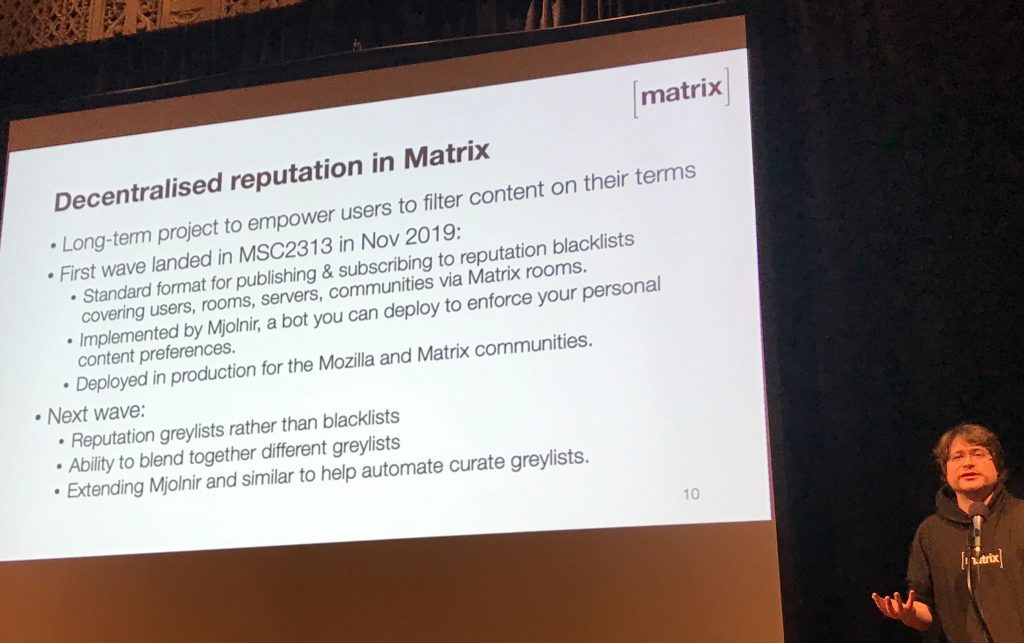
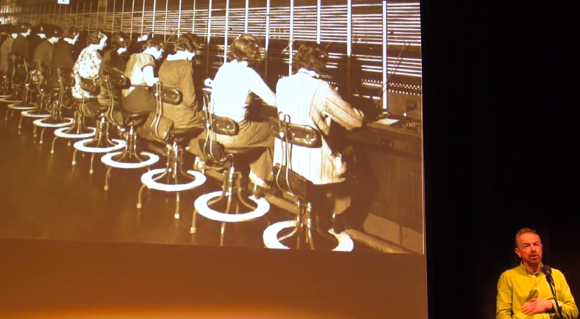
Thought leader and tech executive, John Ryan, provided valuable historical context both onstage and in his recent blog. He compared today’s social media platforms to telephone services in 1900. Back then, a Bell Telephone user couldn’t talk to an AT&T customer; businesses had to have multiple phone lines just to converse with their clients. It’s not that different today, Ryan asserts, when Facebook members can’t share their photos with Renren’s 150 million account holders. All of these walled gardens, he said, need a “trusted intermediary” layer to become fully interconnected.
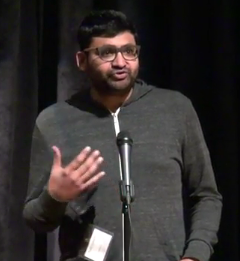
Next CTO, Parag Agrawal, outlined Twitter’s goals and the problems all social media platforms face. “Decentralization to us is not an end, it’s a means to an end,” he explained. “We have a hypothesis on how it can help solve these problems.” Agrawal says Twitter will be bootstrapping a team they call “bluesky,” who will not be Twitter employees, but independent. “Twitter will have very little control (over bluesky) other than our bootstrapping efforts,” he laid out.
Next up was Burak Nehbit, founder of Aether, something akin to a peer-to-peer Reddit. But here’s Aether’s secret sauce: expert moderation, with 100% transparency and communities who elect their own moderators. Aether is focused on “high quality conversations” and those users willing to roll up their sleeves and moderate them.
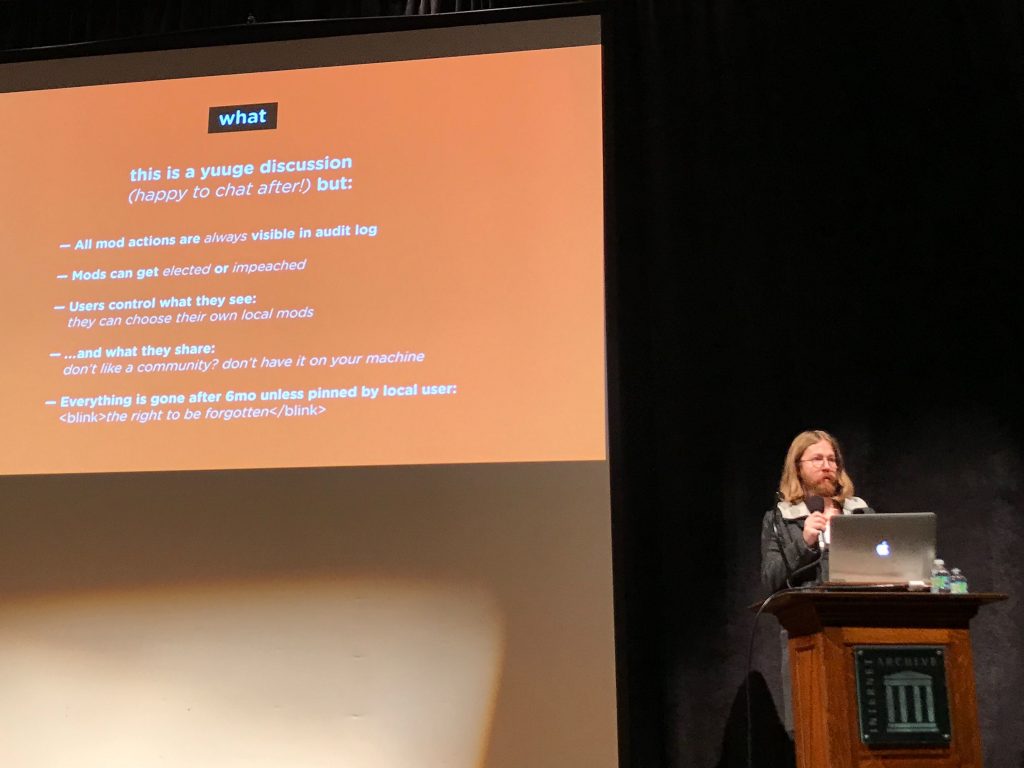
And rounding out the evening was Edward West, founder of Hylo.com, an app that combines group management, messaging and collaboration built on holochain. Recently Holo acquired the Hylo software and Holo’s Director of Communications Jarod Holtz explained why this union is significant for decentralized builders, including the Terran Collective‘s Aaron Brodeur and Clare Politano, who will be stewarding the Hylo project:
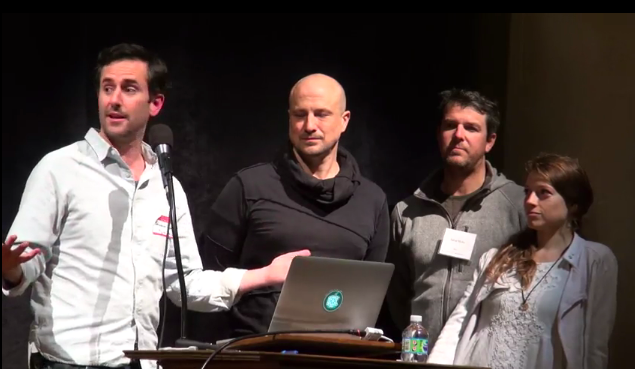
From both a design and an engineering perspective, the way Hylo is structured makes it perfectly suited to being converted to run in the future as a decentralized application on Holochain. The Hylo code base will be instrumental in helping us demonstrate how a centralised app can be transformed into a distributed app.
Blockchain based social media solutions, including Bevan Barton’s Peepeth built on Ethereum and Emre Sokullu of Pho Networks, gave overviews of their work at lightning speed. After the Meetup, Sokullu penned this article explaining how Pho can serve as a programming language to build decentralized applications.
From federated to blockchain and gradations in between, decentralized social media is taking flight. And on one winter night in San Francisco, builders of wildly diverse projects came together at the Internet Archive to demonstrate how far they’ve come—and the long road ahead.


